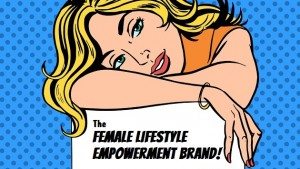empowermyth
The Female Lifestyle Empowerment Brand is a problematic ideology of ideal femininity sold to us by the entrepreneurs and leaders we most trust, and hire.
Read MoreThe Female Lifestyle Empowerment Brand is the modern incarnation of what Betty Friedan called The Feminine Mystique and Naomi Wolf called The Beauty Myth.
Read More
